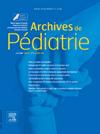Implementation of a protocol to prevent hypoglycemia in at-risk neonates born at 35 weeks’ gestational age in a tertiary hospital: Adherence and satisfaction. It's not so easy!
IF 1.3
4区 医学
Q3 PEDIATRICS
引用次数: 0
Abstract
Background
The present study assessed adherence and satisfaction regarding a new protocol for preventing hypoglycemia in neonates, with a target of 80 % adherence.
Methods
This 6-month prospective observational study was conducted between 2021 and 2022 in a tertiary hospital maternity unit. Neonates with at least one hypoglycemia risk factor were included. Two factors for adherence were evaluated: feeding before 1 h of life and capillary blood glucose assay at 2 h of life.
Results
Protocol adherence was 67.6 % overall, with clinically satisfactory protocol application. Neonates small for gestational age were at the greatest risk of hypoglycemia (34.8 %). Non-adherence mainly concerned early feeding (28.9 %). The rate of hypoglycemia with adherence and non-adherence was, respectively, 15.8 % (n = 27/171) and 22.0 % (n = 18/82) (p = 0.23). Teams integrated the new recommendations successfully (satisfaction: 8/10), with some reluctance on the part of childcare assistants due to increased workload.
Conclusion
This apparently simple protocol could be supported by a quality improvement program. This study might help other care teams to establish similar protocols and identify areas for improvement.
在一家三级医院实施预防胎龄 35 周高风险新生儿低血糖的方案:遵守情况和满意度。没那么容易
背景本研究评估了预防新生儿低血糖新方案的依从性和满意度,目标是达到 80% 的依从性:这项为期 6 个月的前瞻性观察研究于 2021 年至 2022 年在一家三级医院的产科进行。研究纳入了至少有一个低血糖风险因素的新生儿。研究评估了遵守协议的两个因素:出生 1 小时前的喂养和出生 2 小时后的毛细血管血糖检测:结果:方案的总体依从性为 67.6%,临床应用效果令人满意。胎龄小的新生儿发生低血糖的风险最大(34.8%)。不遵守规定的情况主要涉及早期喂养(28.9%)。坚持和不坚持的低血糖发生率分别为 15.8 %(n = 27/171)和 22.0 %(n = 18/82)(p = 0.23)。团队成功地采纳了新建议(满意度:8/10),但儿童保育助理因工作量增加而有些不情愿:结论:这一看似简单的方案可以得到质量改进计划的支持。这项研究可能有助于其他护理团队制定类似的方案,并找出需要改进的地方。
本文章由计算机程序翻译,如有差异,请以英文原文为准。
求助全文
约1分钟内获得全文
求助全文
来源期刊

Archives De Pediatrie
医学-小儿科
CiteScore
2.80
自引率
5.60%
发文量
106
审稿时长
24.1 weeks
期刊介绍:
Archives de Pédiatrie publishes in English original Research papers, Review articles, Short communications, Practice guidelines, Editorials and Letters in all fields relevant to pediatrics.
Eight issues of Archives de Pédiatrie are released annually, as well as supplementary and special editions to complete these regular issues.
All manuscripts submitted to the journal are subjected to peer review by international experts, and must:
Be written in excellent English, clear and easy to understand, precise and concise;
Bring new, interesting, valid information - and improve clinical care or guide future research;
Be solely the work of the author(s) stated;
Not have been previously published elsewhere and not be under consideration by another journal;
Be in accordance with the journal''s Guide for Authors'' instructions: manuscripts that fail to comply with these rules may be returned to the authors without being reviewed.
Under no circumstances does the journal guarantee publication before the editorial board makes its final decision.
Archives de Pédiatrie is the official publication of the French Society of Pediatrics.
 求助内容:
求助内容: 应助结果提醒方式:
应助结果提醒方式:


